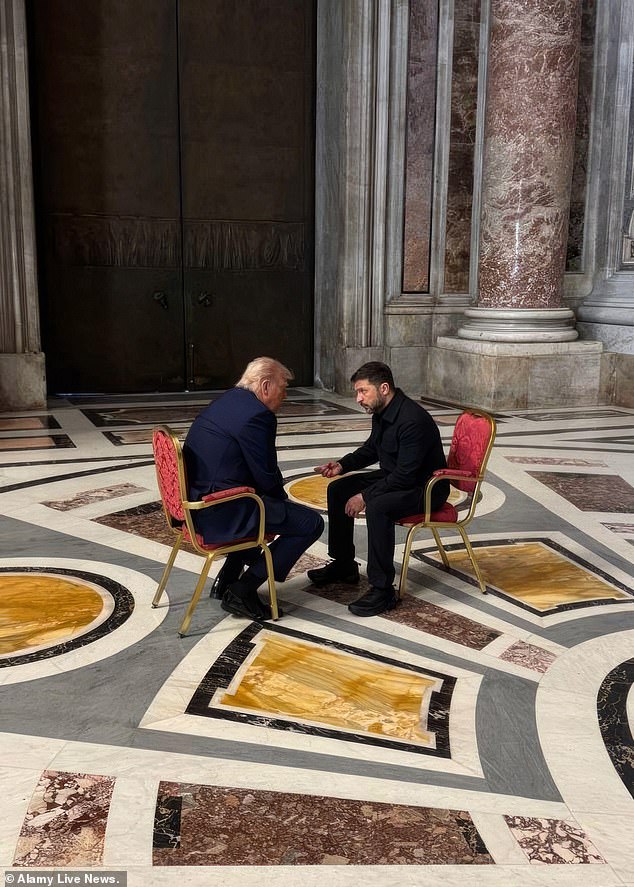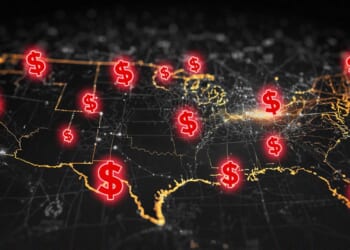If Ukraine’s president Volodymyr Zelensky is the sort of person who sees a half-empty glass as half-full, he will take some consolation from the fact that the deal his deputy PM signed in Washington yesterday is a lot better than the one he was offered in the White House two months ago.
Then, President Trump was demanding that he hand over a $500billion share of Ukraine’s ‘rare earth’ and other minerals in exchange for the military aid it has already provided to Kyiv.
Under the final deal, however, the demand for reimbursement appears to have been abandoned, Ukraine keeps ownership of its natural resources and only new developments will be shared with the Americans on a 50-50 basis.
But the newly created American-Ukraine reconstruction investment fund won’t be breaking ground any time soon because yesterday’s agreement did not include any security guarantees.
Trump suggests that the very presence of American contractors on the ground would act as a deterrent against Russian attacks. But, as the Ukrainians have bitterly pointed out, Coca-Cola was operating in Ukraine three years ago but that wasn’t enough to prevent Russia’s invasion.
The truth is no one is going to install an oil rig off the coast in the Black Sea if they think a drone could appear at any moment and drop a bomb on it.
The question now is: can Trump persuade Putin to come to the negotiating table and make concessions? As recently as a few days ago, Russia’s ghoulish foreign minister Sergei Lavrov was sounding as hardline as ever.
He insists that Moscow must be allowed to keep the eastern provinces it already occupies, as well as Crimea, and Kyiv must be banned from joining Nato.
In addition, he wants to see the ‘de-Nazification’ of Ukraine – by which he means the silencing of any criticism of Russia – and its armed forces must be forbidden to acquire or manufacture modern weaponry.

Is the US President going to really push back on Putin’s demands or will he pressure Zelensky to agree a humiliating armistice?
If Zelensky put those terms to Ukraine’s parliament, he would be very hard-pressed to get them agreed. Nationalist groups and elements of the army would be appalled.
And if he failed, Russia’s position would be stronger than ever.
Everything still depends on the Trump-Putin relationship. Is the US President going to really push back on Putin’s demands or will he pressure Zelensky to agree a humiliating armistice?
Given that Trump’s approach to the Russian leader up to now seems to have been based on nothing more profound than what side of the bed he got out of in the morning, that is impossible to predict. One moment he is hailing Putin as a friend, the next railing against him for bombing civilians.
Perhaps he should take a page out of the Stalin playbook. When the Americans made it clear that they would be pushing Germany for an unconditional surrender as World War II drew to a close, Russia’s wartime leader suggested offering Hitler peace terms.
If the Fuhrer was weak and accepted them, said Stalin, then more conditions could be demanded until the Allies had the unconditional surrender they had wanted all along. It would be ironic indeed if an approach championed by a Russian despot 80 years ago paid dividends for an American leader today.
Mark Almond is director of the Crisis Research Institute in Oxford







